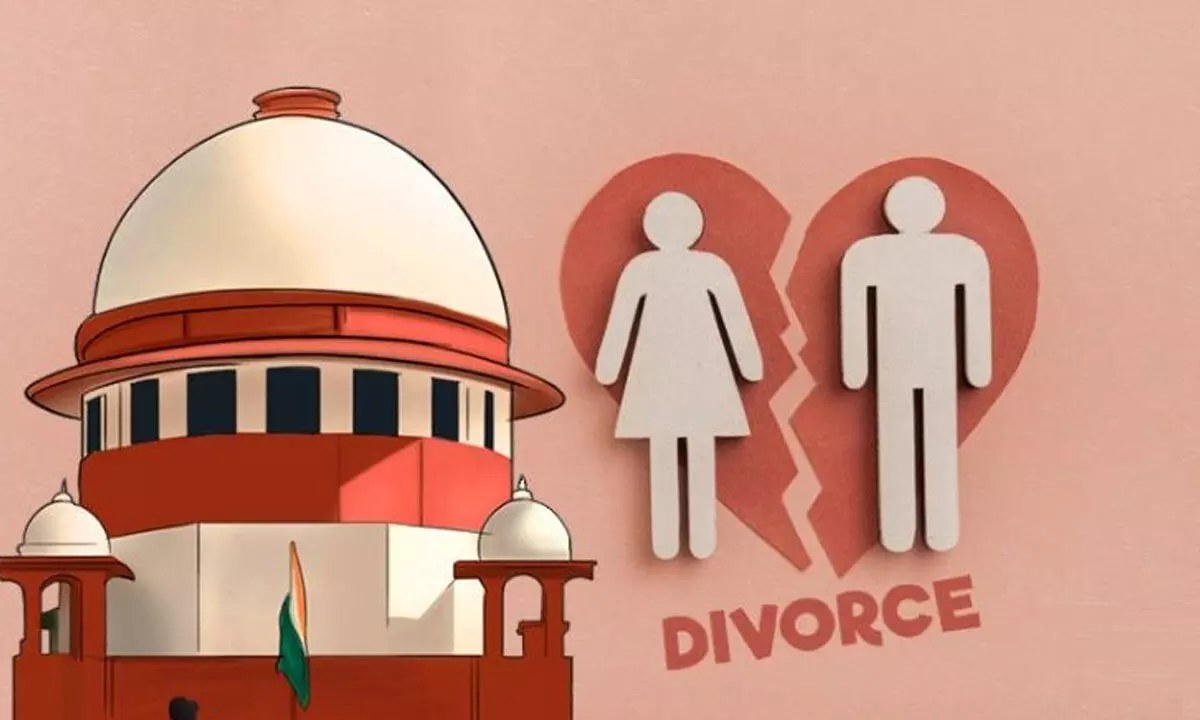Can dissolve marriage under Art 142, rules SC

Can dissolve marriage under Art 142, rules SC
Court says it can do away with 6-month waiting period for mutual consent divorce
New Delhi: The Supreme Court can dissolve a marriage on the grounds of irretrievable breakdown as per its powers under Constitution’s Article 142 and grant a divorce without sending the parties to a family court where they must wait for between six and 18 months to obtain it by mutual consent, a constitution bench ruled on Monday. The waiting period can be dispensed with, it added.
The bench said the court can dissolve a marriage under Article 142 even in cases where one of the parties is not agreeable to divorce.
In June 2016, a two-judge bench referred to the larger bench of five judges the matter regarding court’s exercise of powers under Article 142 to grant a divorce without sending the parties to a family court. It also sought clarity on the broad parameters for the exercise of powers under Article 142 to dissolve a marriage between the consenting parties.
The five-judge bench was asked to determine whether the exercise of jurisdiction under Article 142 should not be made at all or whether such exercise should be left to be determined in the facts of every case.
The two-judge bench in June 2016 appointed senior advocates Indira Jaising, Dushyant Dave, V Giri, and Meenakshi Arora as amici curiae.
The five-judge bench comprising Justices Sanjay Kishan Kaul, Sanjiv Khanna, AS Oka, Vikram Nath, and JK Maheshwari on Monday said the court’s powers under Article 142 are unhindered by statutory limitations. It added the constitutional provision empowers the court to issue any order to do complete justice between parties. The bench specified guidelines for the apex court while exercising its discretion in granting a divorce.
Irretrievable breakdown of marriage is not a ground available under the Hindu Marriage Act for couples seeking a divorce. But the Supreme Court has been granting decrees of divorce exercising its jurisdiction under Article 142 to do complete justice between the parties. Some of the other grounds for divorce under the Hindu Marriage Act include adultery, desertion, conversion, and insanity.
The five-judge bench in September reserved its judgment in the matter.
Formulating the issue, the constitution bench in September said: “We do believe that another question which would require consideration would be whether the power under Article 142 of the Constitution of India is inhibited in any manner in a scenario where there is an irretrievable breakdown of marriage in the opinion of the Court but one of the parties is not consenting to the terms.”
Last week, the court said though the irretrievable breakdown of marriage is not a ground for divorce under the Hindu Marriage Act, it can be construed as “cruelty” to be legally recognised as a valid ground under the law.
“A marriage which has broken down irretrievably, in our opinion, spells cruelty to both the parties, as in such a relationship each party is treating the other with cruelty. It is, therefore, a ground for dissolution of marriage under Section 13 (1) (ia) of the Act,” said a bench of justices Sudhanshu Dhulia and JB Pardiwala on Wednesday last.








